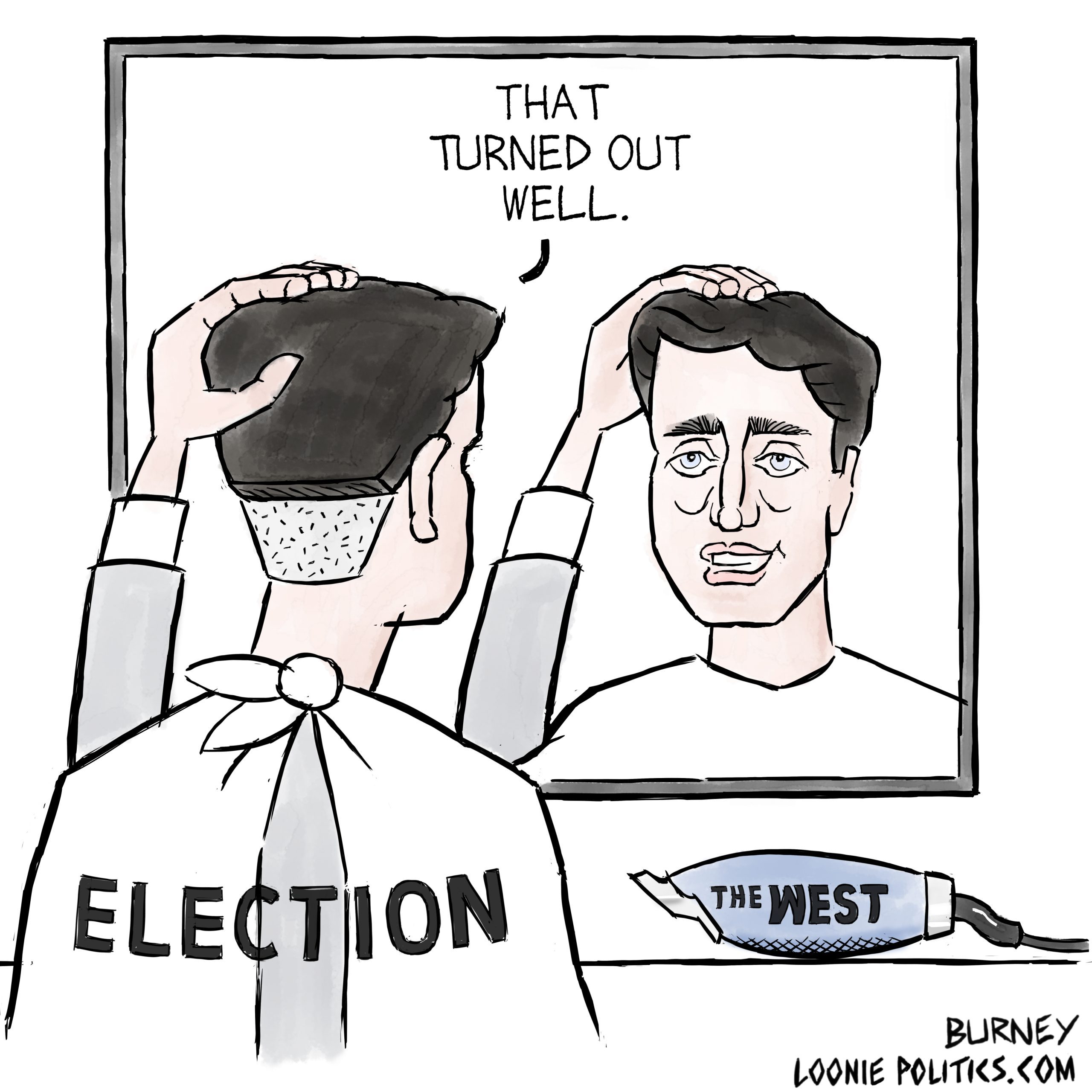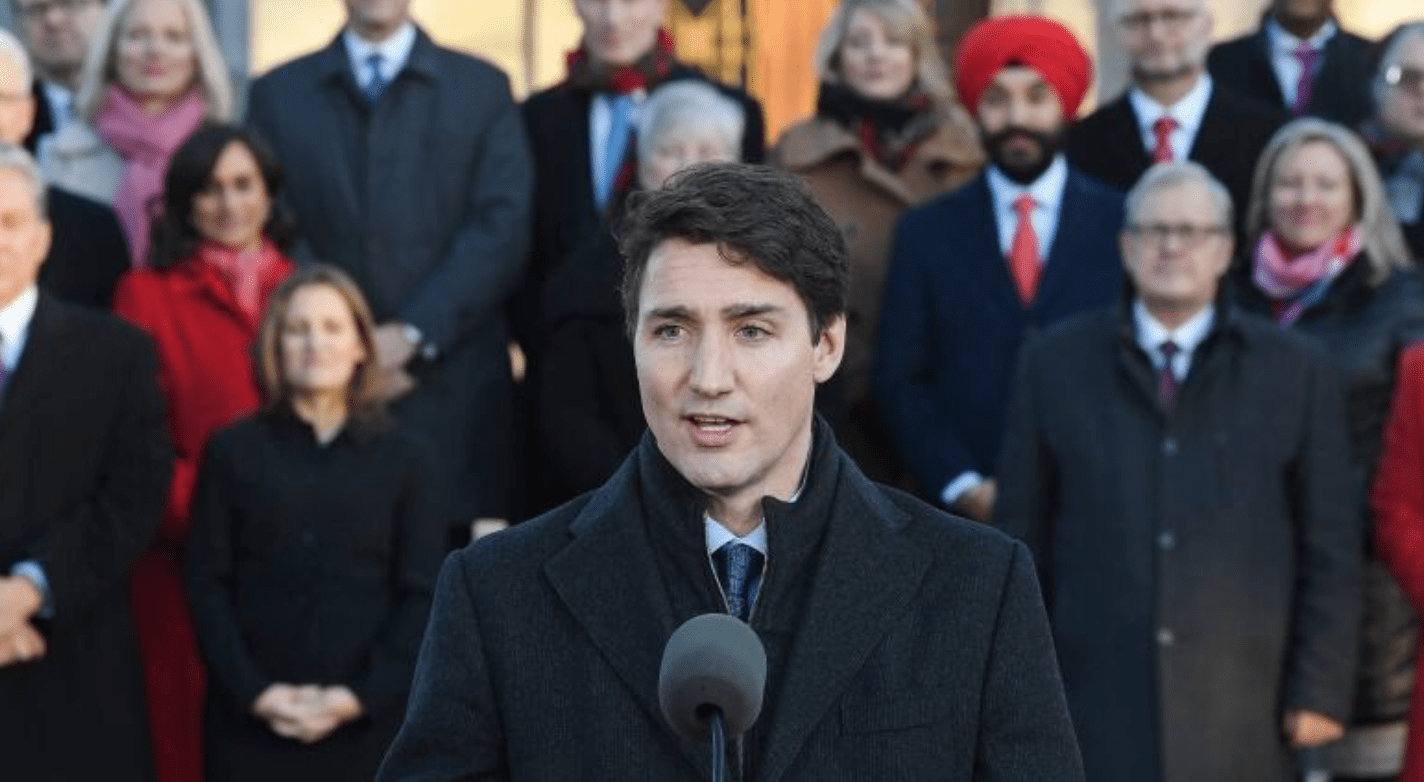"[Canadians] sent a clear message that they expect us as government to work with the other parties on these issues that matter to them and that's exactly what we're going to do."
—Prime Minister Justin Trudeau on October 23, 2019
If Liberals wish to engineer a stable Parliament, avoid wasting almost half a billion dollars on an unnecessary early election and prevent a multitude of would-be legislation from dying on the order paper, the Trudeau government should give serious consideration to entering into a confidence-and-supply agreement with either New Democrats or the Bloc Québécois.
Last month's federal election resulted in a hung parliament, the Liberal majority deflated to a plurality and the popular vote conceded to the Conservatives. Despite this, Trudeau is determined to carry on unilaterally in a minority government, rather than seek formal cooperation with other political parties.
This is no surprise. The typical aftermath of a hung parliament in Canada is for one party to go it alone, despite the obvious challenges. Coalition governments are a rarity in this country, reserved for wartime or economic calamity: there has been only one such government constructed federally since Confederation.
But between the polar extremes of one party governing on its own with a minority, and two or more parties forming a united coalition, lies what is arguably the "Goldilocks" arrangement of hung parliaments: confidence-and-supply agreements. In such accords, one or more opposition parties agree to help the government of a hung parliament pass throne speeches, budgets, and other matters involving parliamentary confidence or money. Rather than voting lockstep with the government on all issues, these parties remain in the opposition and are free to vote as they like on matters outside of confidence and supply. The smaller parties keep the government afloat and prevent an early election, but aren't obliged to support individual legislation they disagree with.
Most importantly, confidence-and-supply agreements greatly increase the durability of hung parliaments, often enabling them to complete their full duration.
While no Canadian federal government has ever entered into a formal confidence-and-supply agreement, such pacts are becoming popular at the provincial level. Five years before Bob Rae became Premier of Ontario, his third-place NDP entered into such an arrangement with the Ontario Liberals in 1985. And two current provincial governments use a confidence-and-supply agreement: the Green Party of British Columbia has kept a BC NDP government afloat since 2017, while the Progressive Conservatives of New Brunswick have been able to muster confidence with the help of the People's Alliance since late 2018.
In Westminster systems across the West, confidence-and-supply agreements have become this decade's must-have parliamentary accessory. Australia broke ground with a pact between Liberals, Greens and independents in 2010, followed by similar arrangements in Ireland and Wales in 2016, as well as in Scotland, the United Kingdom and New Zealand in 2017.
Does Canada's 43rd Parliament require a confidence-and-supply agreement? The Liberal government isn't likely to face too much turbulence, at least not initially. Trudeau has two dance partners (the NDP and the Bloc) he can pit against each other, to minimize the number of concessions Liberals must grant. And for now, no party wants an early election: the Conservatives are mulling over whether to tolerate or jettison Andrew Scheer as leader, while the NDP and Bloc both face depleted coffers after an arduous election.
But the current reluctance of opposition parties could rapidly transform into scheming ambition. Like most governments, the Liberals will struggle to circumvent their downward trajectory unless they can summon some Chrétien- or Wynne-like sorcery. And after a couple of years of respite and fundraising, opposition parties may fancy their chances in a snap election.
By comparison, British Columbia's confidence-and-supply agreement contrasts starkly with what Canadians have come to expect from hung parliaments. After an initial cacophony of pundits insisted the legislature would be inundated with treachery and only last a number of months, B.C.'s provincial government instead remains an unexpected pinnacle of stability two-and-a-half years later. One could argue it's been downright dull, completely lacking in palace intrigue disappointing for those seeking political drama, but ideal for British Columbian residents in search of predictable governance.
If the upcoming federal Parliament is to last its full duration rather than fall prey to the aspirations of jockeying parties from which the governing Liberals are not excluded it must look to the provinces and overseas Westminster systems for inspiration. Unfortunately, a confidence-and-supply agreement will only come to fruition if the Liberals desire a four-year Parliament. And by many accounts thus far, they may not.
Photo Credit: Jeff Burney, Loonie Politics








